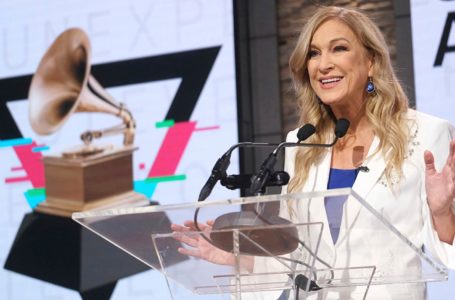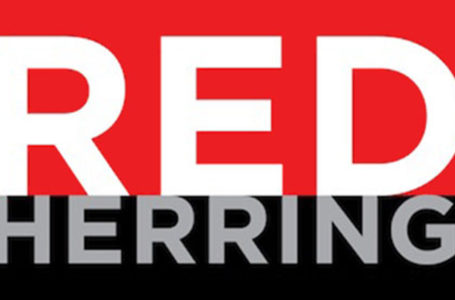Lawyers say Paradigm and APA are setting themselves up for legal fights by cutting agents before their contracts expire.
Literary agent Debbee Klein’s lawsuit filed Thursday against Paradigm Talent Agency is full of stunning allegations, including payoffs to prostitutes and other criminal misconduct, but it’s the language around Klein’s contract termination and cuts to her compensation and health benefits that could prove to be a major liability for the agency.
Without warning, Klein claims she and 200 other Paradigm employees were either temporarily laid off or had their employee contracts unilaterally suspended or terminated on March 20 when chairman Sam Gores decided to institute “temporary layoffs.” As a result, Klein and the other employees will be left without health insurance at the end of April — just as the coronavirus pandemic is expected to peak in California, according to data from the Institute of Health Measurement and Evaluation.
“He didn’t bother to call his agents, some of which have immunocompromised kids, to ask about their families — he just ripped their health insurance away,” says Klein’s attorney Bryan Freedman, who represented Megyn Kelly in her legal battle with NBC News and now represents Gabrielle Union in her lawsuit against America’s Got Talent and Deborah Dugan in her lawsuit against the Recording Academy. “Nothing makes me happier than going after someone who takes away people’s health insurance during a pandemic.”
I’m going after him hard, the bully is going to get bullied
Bryan Freedman
APA has also made similar cuts to staff, ending at least a dozen agents’ health insurance on April 30 and temporarily suspending the compensation portion of their contracts while still enforcing non-compete provisions that protect the agency’s rights. A source at APA says the suspensions are temporary, but affected agents at both firms argue the indefinite suspensions are de-facto terminations without cause and will likely result in breach of contract lawsuits.
“I would argue that within an employment agreement, a suspension of pay is such a material element of the contract that a breach of contract is likely,” says attorney Michael Seville with the San Francisco firm Seville Briggs. Seville, who has negotiated contracts and litigated for large labor unions and corporate executives, says if a judge or jury found that a breach had occurred, the employer could be required to pay the employee for wages during the suspension period. If there was a payout clause in the contract that required the agency to pay the remainder of the contract to the employee if they were terminated without cause, Seville explains, the agency could likely be required to buyout the contract.
The coronavirus-caused shutdown of the live entertainment industry has been an economic calamity for the touring sector and prompted salary reductions at agencies like UTA — which has so far avoided layoffs — and WME, whose parent company Endeavor has cut some non-essential employees but has mainly relied on salary reductions to avoid layoffs in its agency business.
Billboard reached out to Paradigm and APA and both companies declined to comment, but APA did forward a March 27 staff memo announcing the suspensions. In the unsigned memo, APA officials said they were “taking the necessary cost-cutting measures companywide to protect our business with minimal impact on our most vulnerable employees.” It made no mention of contract suspensions.
A terminated Paradigm employee who wished to remain anonymous for fear of retribution says they were told the agency was invoking a force majeure provision in their employee agreement caused by the spread of the coronavirus when suspending their contract. But, the former employee noted, the contract’s language around force majeure includes a 90-day notice requirement that wasn’t given.
An APA agent that did not want to reveal their name likewise said that the company cited force majeure to justify suspensions, but continued to operate most of its departments and kept people in similar positions employed. Ironically, the agent said, APA’s own standard for force majeure when applied to events they book for artists is much higher — the event would have to be impossible to stage.
“We wouldn’t let a promoter tell us they were invoking force majeure to save some money here and cut some costs here, but remain operational and host events,” the former APA agent said.
“It’s pretty dicey when you’re deciding who gets to stay and who doesn’t,” Seville says. “I would argue that force majeure cuts would have to be universally applied across the business.”
In Klein’s lawsuit in Los Angeles County, she says Paradigm’s decision to terminate her contract without cause during the onset of the U.S. coronavirus outbreak was a breach of an oral contract she reached with Gores in December covering her employment through 2021. Her attorney Freedman says changes to her compensation in the month after her original contract expired prove she had a new employment agreement in place. Freedman says Gores is now using the coronavirus pandemic as an excuse not to pay the high profile agent the money he owes her and take away health insurance from more than 200 employees.
“Because he tried to bully my client and took his staff’s health insurance away, he’s now my number one target,” says Freedman.
“I’m going after him hard,” Freedman says. “The bully is going to get bullied.”





